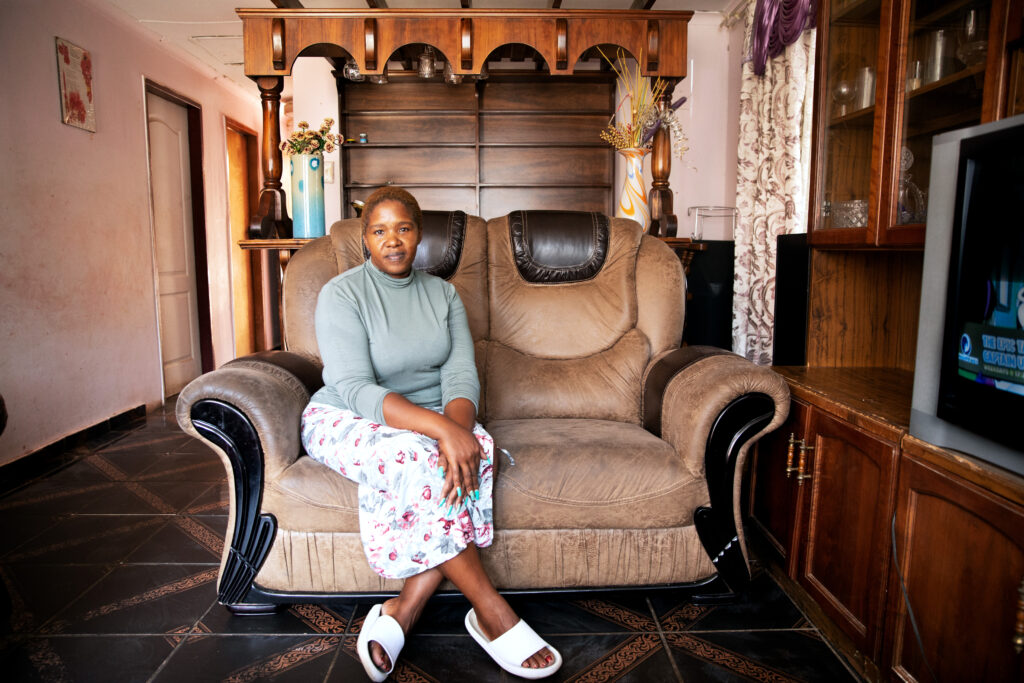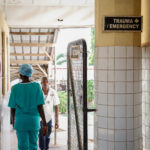- The World Health Organisation (WHO) reports that 1.9-million babies were stillborn in 2020, mostly in low-income countries in Africa and Asia.
- Stillbirth is when a baby dies in the womb in the latter half of a pregnancy (the WHO says from 22 weeks). How to reduce these deaths by 2030 was one of the issues delegates discussed at last week’s International Maternal Newborn Health Conference held in Cape Town.
- Bhekisisa reporter Zano Kunene spoke to Wanjiru Kihusa, whose daughter was stillborn in 2013. After her loss, Kihusa set up a non-profit that has since helped more than 6 000 parents who’ve lost a child during pregnancy, through counselling, group therapy and peer support.
- This piece forms part of our #SliceofLife series. #SliceofLife stories are short, first-person accounts of people’s experiences.
“She was so small; she fit in [one of] those silver [stainless steel] trays.
“I remember worrying that she was cold in the tray, even though she wasn’t alive. But I was numb. My sister was crying and I was comforting her as if she had just lost a child.
“The day before, my water broke.
“My husband and I had gone to hang out with some university students that we were mentoring [the previous evening]. I had to step away [at one point] and go sit in the car with the heater on because I was [so] cold. I knew something was off.
“We got home and I remember we spoke about what we were going to name our girl. But at around 2am I woke up. I was in insane pain.
“We rushed to the hospital and I was sent for an ultrasound to check the heart rate of the baby. There was still a heartbeat, but it was abnormally high. [The heart rate is measured to make sure the foetus is getting enough oxygen, healthy and growing well.]
“The doctors were afraid that I would go into labour, so I was put on a bunch of medicines to stop that [from happening]. They told me if my baby was born now — at 20 weeks — she would not survive. [A full-term pregnancy is between 39 and 40 weeks.]
“My gynaecologist walked in [after my water had broken] and I could see the devastation on her face.
“From that point it felt like an out-of-body experience. There wasn’t enough time to move me to the labour ward, so I had to give birth on my hospital bed. There wasn’t a lot of pushing, because it was a small baby at 20 weeks.
“Everything sunk in when I took my first shower and realised I wasn’t pregnant anymore.
“My husband and I were really excited when we found out we were pregnant in 2013. But it was a difficult pregnancy because as early as six weeks in, I began to “spot”. [Spotting refers to vaginal bleeding that occurs during pregnancy.]
“I went to the doctor to do tests and she told me my pregnancy was still okay, but I was put on medication that would make my body produce more progesterone [a hormone that thickens the lining of the uterus and maintains the pregnancy] until 12 or 13 weeks [to keep my baby growing].
“I made it to 16 weeks and could stop taking the medicines. I had a month of relief. Then, out of the blue, the symptoms [spotting] came back. [At the time], the doctors told me I was fighting an infection but they couldn’t tell what it was.
“[After we had lost our child], I quit my job as a manager at an IT firm. I started writing a blog, asking people for places [I could go to] that had support groups.
“I would chat with many moms who had lost their children [during pregnancy] and meet up with them for lunch, which became a frequent thing — and it helped me.
“But I realised [after some time] that lunch was not enough and I had not faced my own grief. And then I started going to therapy — for myself.
“They showed me the importance of speaking to a professional. I began to find out how to run my own support groups, and which topics would come up in the meetings.
“And that’s how Still A Mum began.”
Wanjiru Kihusa is the founder of Still A Mum, a non-profit organisation based in Kenya that provides mental health support to parents who have lost a child during pregnancy. Kihusa spoke to health reporter Zano Kunene at the International Maternal Newborn Health Conference in May about her and her husband’s experience dealing with the loss of their daughter after she was stillborn in 2013. A stillbirth is when a baby dies in the womb, from as early as the 20th week of pregnancy. According to a new report by the World Health Organisation, 1.9-million babies were stillborn (after 22 weeks) across the world in 2020, mostly in low-income countries in Africa and Asia. South Africa recorded about 19 stillbirths per 1 000 live births in 2020. The national maternal, perinatal and newborn policy states that the country aims to cut deaths related to pregnancy and birth — of mothers and babies — at public healthcare facilities by half by 2030.
Zano Kunene is a health journalist at Bhekisisa.






